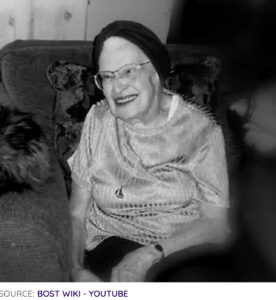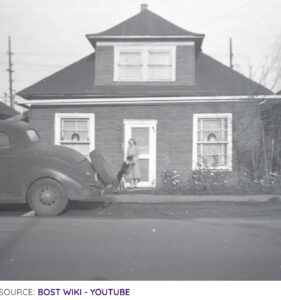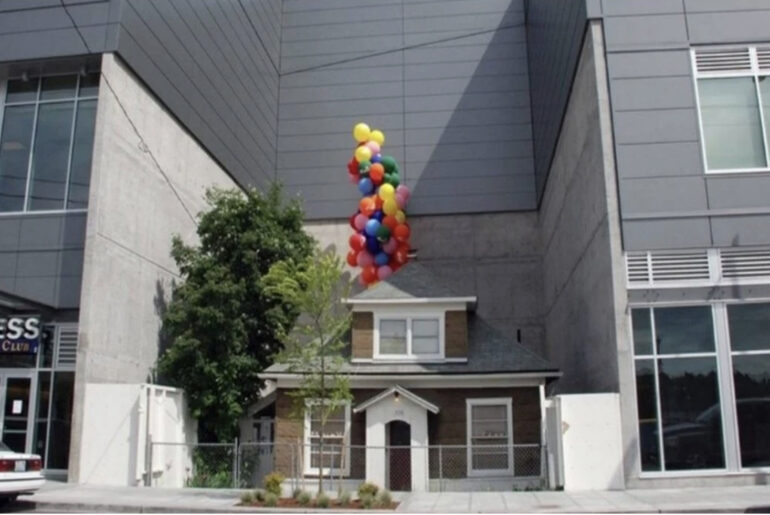A million dollars couldn’t sway Edith Macefield into selling her family home.
When you get to a certain age, money doesn’t mean much.
Having lots of things doesn’t mean much.
What means much is family, friends, and a happy home.

So, when developers offered Edith Macefield a million dollars to move so they could demolish her home and build more places that sell stuff and offer stuff she flat out said, “No!”
Macefield wanted to stay in her 100-year-old Ballard, Washington home.
Some people called the move “punk rock” or “rebellious” or even a big middle finger in the face of capitalism and its pursuit of growth in order to increase profits.
It is unknown if Macefield saw it that way, but she did live her life the way she saw fit regardless of what anyone else had to say about it.
BostWiki reports that she told her mother she was going to college at the age of 16 and secretly joined the army which brought her to England.
She then got kicked out of the army after they learned she was underage. She stayed in England and ended up taking in war orphans and even toured with the Royal Army’s marching band.

She also convinced some of her friends that she was working as a spy.
Macefield later moved to Ballard, Seattle in 1952.
After Macefield refused to sell her home in 2007, she and the developers were in a stalemate.
So, she kept her house, and the developers built a massive office and retail complex around it. They bought up all of 46th street except for Macefield’s house.
The big grey-blocked buildings are a far cry from the rural neighborhood by the lake the neighborhood used to be when Ballard moved in.
Though Disney Pixar says the story for the movie “Up” wasn’t directly inspired by the Macefield house, they reportedly attached balloons to the house to promote the movie. Macefield and her home ended up becoming a local symbol for anti-development and the “fiercely independent spirit.”

In 2013, they even named the Macefield Music Festival after her in honor of “holding onto things that are important to you.
After Macefield died, she left the home to construction superintendent Barry Martin after they befriended each other.
He sold the property in 2009, but it went into foreclosure and was put on the auction block where it didn’t get any bids.
The house was scheduled to be demolished and there were several attempts by the community to save the home and keep it as a landmark.
Many tying balloons to the house’s fence.
“There are always people rolling by here. They’re very emotionally attached to it,” Steven Raymond told Fox 13 Seattle. “I think it speaks volumes about how fast the city is changing and how people love to hold on to a little bit of magic.”
Efforts to raise money to save the house ended up failing.
However, in 2018, a decade after Macefield passed away, the developers announced that they would keep the house as a part of their development.
So, it seems that the home and development now live in a mutually beneficial co-existing relationship.
“Honestly, I think we’re a lot alike,” a developer once said about Macefield. ” I’m stubborn and so was she. We’ve had some incredible arguments. She was amazingly smart. I think this illustrate’s Edith’s character.”
The house serves as a draw to the area where people can shop and a good place for an Instagram pic, while also bringing joy and wonder to the community.
The Macefield house continues to be a standing testament to freedom, standing your ground, and the magic that still exists when the community decides it does. All you have to do is say, “No!”
Please SHARE this with your friends and family.




